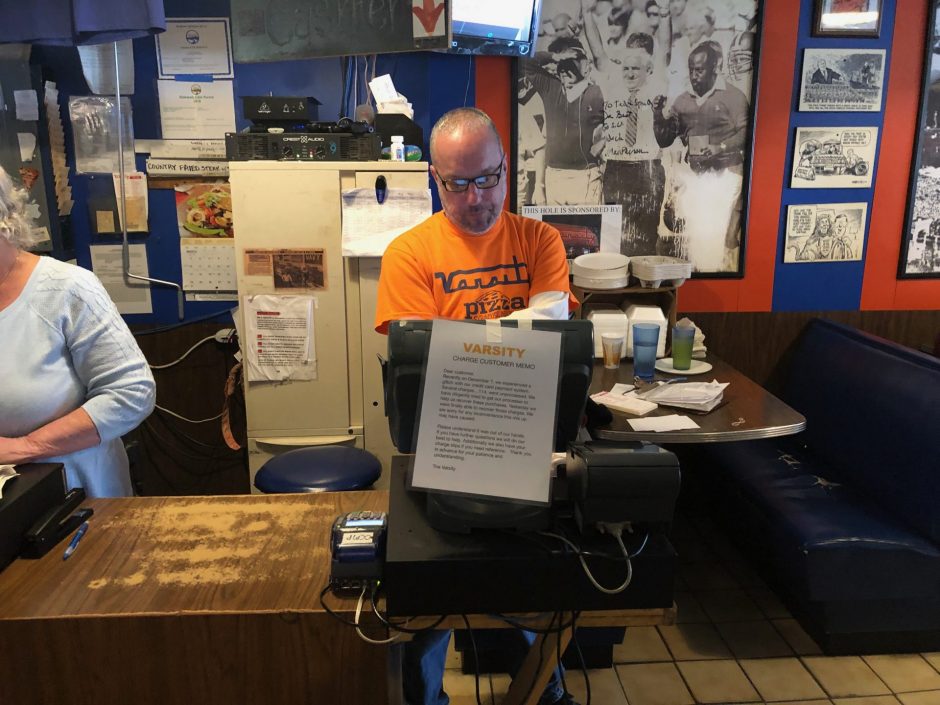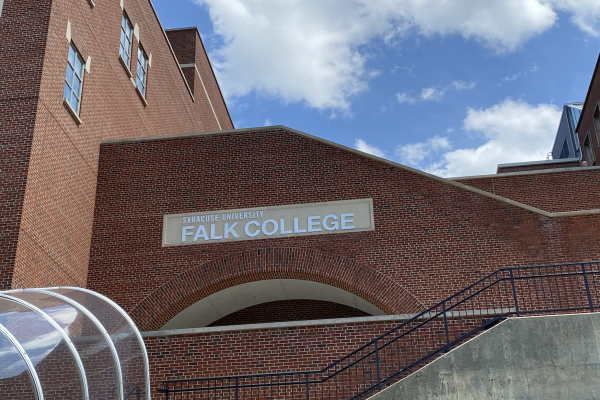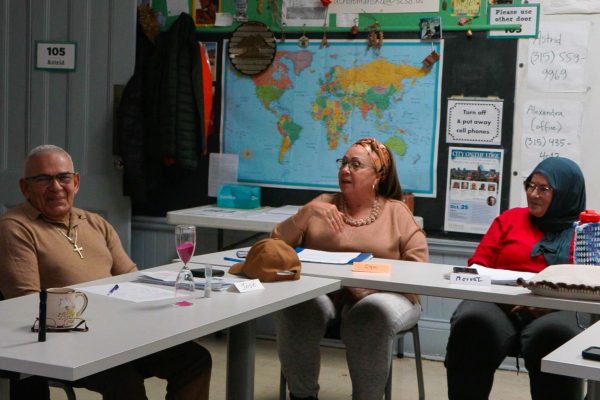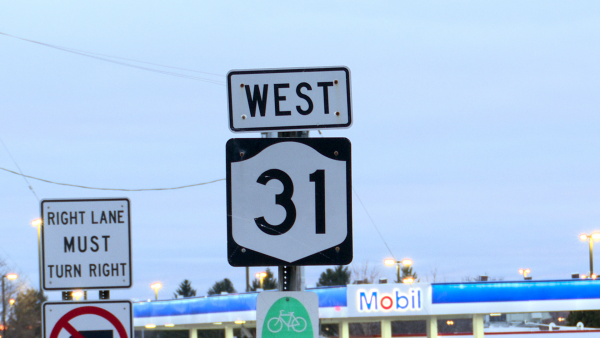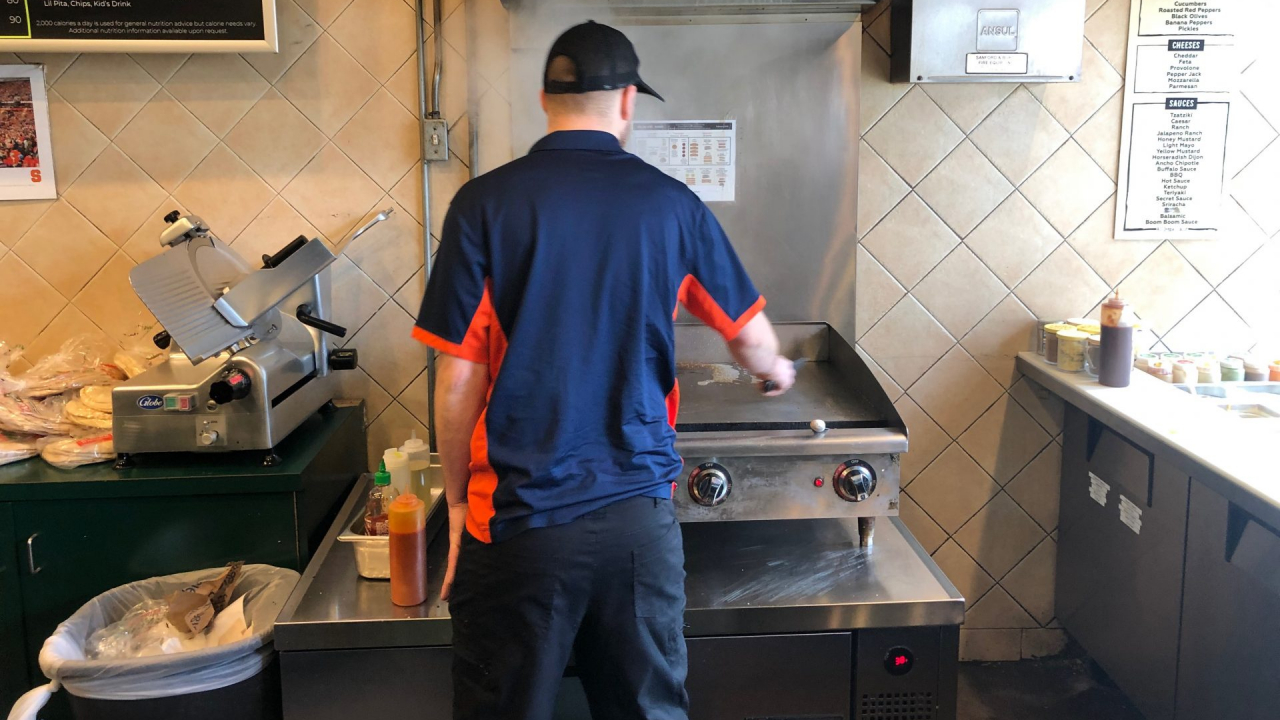
As part of New York State’s plan to raise the minimum wage to $15 an hour throughout the state by 2021, the minimum wage has increased every year since 2016. Since then, the minimum wage has risen 70 cents each year.
“We try to staff fewer people which detracts from service and also makes the job harder for everybody that is working,” said shift supervisor at Varsity, Eric Ockert. Ockert believes this is one of the few impacts the rise in wages has on the business.
The Pita Pit on Marshall Street also has limited staffing for shifts due to the rise in wages. The restaurant staffs only the bare minimum according to Christopher Gaiser, general manager of the store.
“It’s very difficult for a small independently owned franchise to deal with such an increase especially when it’s forecasted to keep increasing at the rate it is. It’s almost scary,” said Gaiser.
At Varsity the solution to rising wages is simple.
“We’re always gonna pass along the cost to the consumer. I mean we’re gonna raise our food prices, and that’s gonna have to happen just to cover our labor costs,” says Ockert.
Varsity is not new to raising prices. On average, the company raises food prices twice a year according to Ockert. The prices don’t just factor in rising wages, but all expenses says, Ockert. Higher costs are nothing new to Varsity, but the increased minimum wage may have added “a little bit more” expenses than usual according to Ockert.
At Pita Pit prices have also increased since the minimum wage started to rise. The rise is more of a “happy medium” according to Gaiser. The increase in salaries has impacts in other ways as well.
“With the minimum wage increase, it trickles down. From where you get your produce, where you get any of your goods,” said Gaiser.
In Gaiser’s experience, an increased minimum wage does not mean harder work from his employees. Hard work depends on the type of employee hired and not what they are paid according to Gaiser. As the minimum wage rises, “it almost makes them entitled to that amount,” said Gaiser.
Despite the challenges of a higher minimum wage, Pita Pit will be alright as long as the restaurant is smart with its money and hiring according to Gaiser.
Since Varsity frequently adjusts its prices the rise in wages does not affect the business much according to Ockert.
“The minimum wage doesn’t really have that much of an effect on us other then in terms of occasionally we might have slightly less staff on, on a given night if we think it’s going to be slow.”

